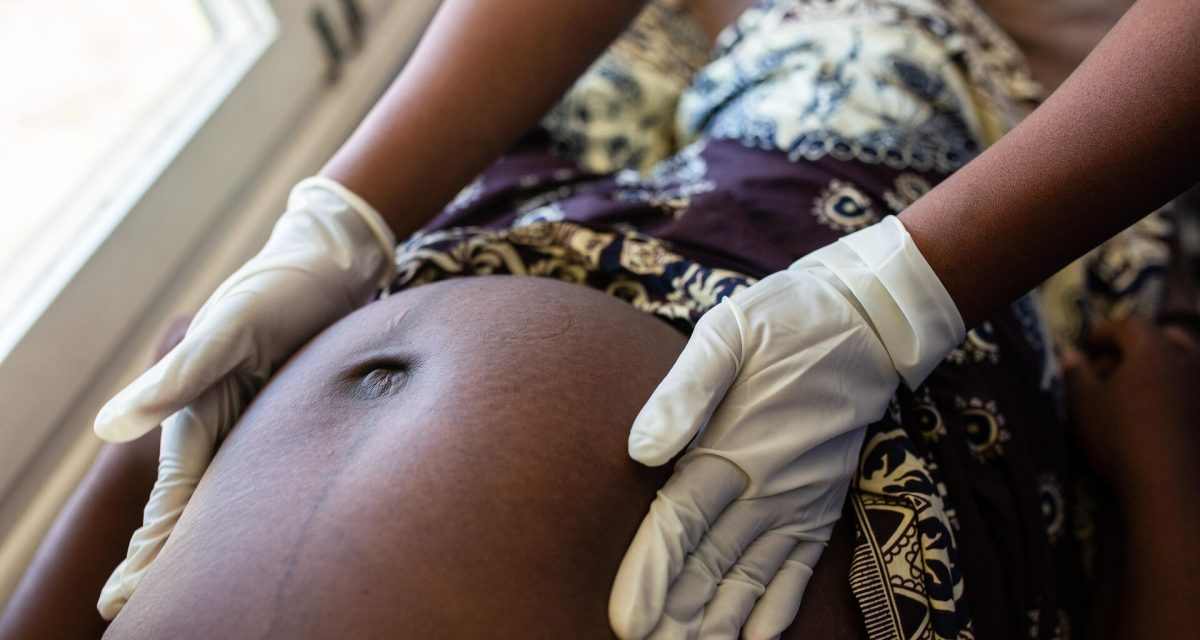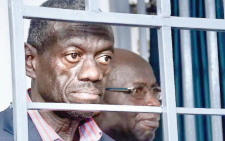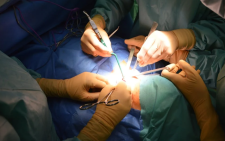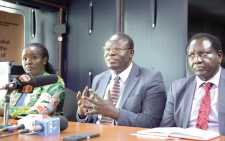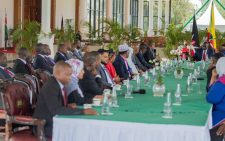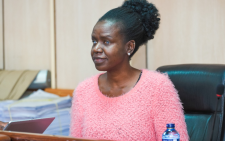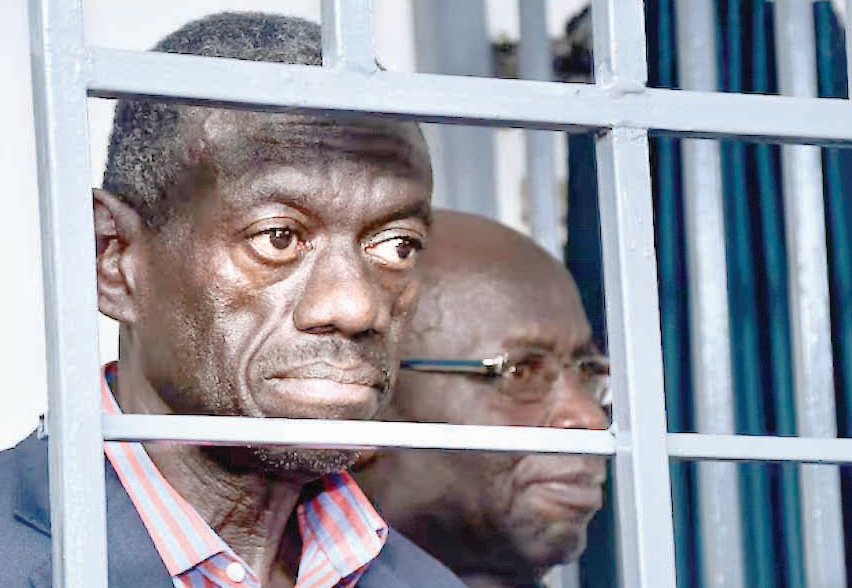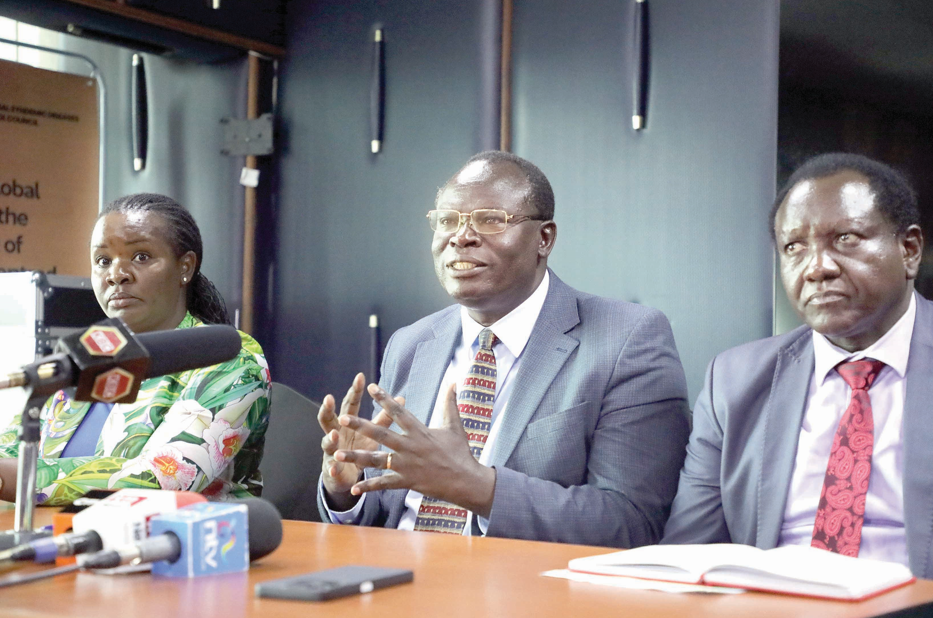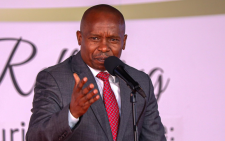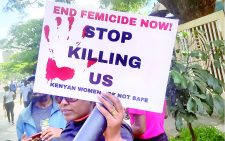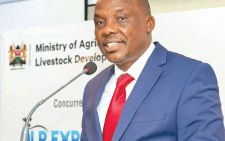Afraill figure of a teenage mother emerges from her parent’s mud-splattered house common in Ebuche Mukuweso village, five kilometres from Mumias town in Kakamega County.
Pregnant at 17 years old, Pauline Omonji suffered a prolonged and obstructed labour that left her incontinent.
The incontinence Pauline suffered was due to a hole that had formed between her birth canal and bladder, known as a fistula. Obstetric fistula forms during prolonged and obstructed labour as the baby’s head compresses the tissues of the birth canal, blood flow is cut off and the tissue dies, leaving an abnormal opening.
Pauline had been out of school in Form One because of lack of school fees, when she got pregnant.
“The healthcare worker who delivered me said my hip joints had not developed and the baby had to be pulled out,” she recounts.
When the injury happens, the mother loses control of her bodily fluids, leaving her constantly leaking urine and/or faeces.
Cycle of poverty
In addition, the formation of a fistula can lead to chronic medical conditions, depression, and isolation, further trapping these women within the cycle of poverty.
Fistula is a condition that affects hundreds of thousands of women, and 90 per cent of them in Africa. Their story, such as that of Pauline is one that hardly gets told.
The tragedy of a teenage fistula patient starts when they go into labour. Because their bodies are not sufficiently mature for carrying a pregnancy and giving birth, they are at higher risk of fistula.
Hailing in remote areas or informal settlements, they are also faced with lack of midwives or access to medical attention. Added to their physical pain and suffering is the mental anguish of lack of information about their situation.
Founder and lead director of Mumias-based Women and Development Against Distress in Africa (Wadadia), Habiba Corodhia Mohamed, who facilitated Pauline’s reconstructive surgery to repair the injury says Pauline is just one among many teenagers and mothers who get tears after giving birth not just in Western Kenya, but the entire country.
She says the continued occurrence of fistula is a serious human rights tragedy that affects the most marginalised in our society.
She cites Article 43 (1) of the Bill of Rights in the Kenyan Constitution that guarantees access to health care that includes reproductive health care.
“Occurrence of fistula is a sign of neglect at the time of delivery and is constitutionally a violation of the rights of affected women,” says Habiba
She regrets that despite remarkable achievements, thousands of women and girls continue to live with the pain, stigma and shame of fistula.
Accessing treatment
“Ending the curse of fistula will require political will, additional resources and strengthened collaboration between governments, partners and civil society,” she says.
She explains gender-based violence in form of sexual abuse of teenagers is a serious cause of fistula among teenagers in the western region.
Further, Habiba, who is also regional director of programmes at Fistula Foundation’s Kenya office explains there are an estimated 3,000 new fistula cases recorded in Kenya per year, and only 7.5 per cent of the women are able to access medical care. This means that every year, more than 2,700 women with new fistula cases do not receive the necessary medical care.
“Skilled personnel to conduct surgeries are rare, making it difficult for patients to access treatment. To help address this, we link patients to hospitals spread countrywide where trained surgeons are stationed to handle surgeries,” she offers.
She estimates a single surgery costs Sh45,000, but additional charges for transport, follow up, drugs an after care pushes cost to even Sh100,000.
“We refer patients to the hospitals for treatment, and then bills are sent to us to settle,” says Habiba.
Human rights matter
Dr Maureen Adundo Okang’o, a fistula surgeon is disappointed at the high rate of fistula patients who turn up in hospitals, but fail to receive treatment, because of costs or lack of medics or any other reason.
“Women suffering from the condition should walk into a government facility and get treated,” says Dr Maureen, adding: Modalities of a state insurance cover needs to be formulated to ensure health insurance is given to them. It is a human right matter when access to treatment is denied, especially in rural villages where facilities and experts are not available,” says Dr Maureen.
According to the latest Kenya Demographic Health Survey 2022, 19 per cent of household populations in rural areas have some form of health insurance.
Kakamega County tops in terms of health insurance coverage in Western Kenya at 20 per cent, Vihiga at 19 per cent, Busia 14 per cent and Bungoma 18 per cent.
National Hospital Insurance Fund (NHIF) is the most common health insurance, according to the survey.
Insurance cover
However, Dr Maureen says a road map stakeholders drew to chart out a way forward to push for insurance health coverage for the poor women appears to have reached a dead end.
“We only met once with Ministry of Health officials. Not much is being heard anymore,” she says.
The stigma subjected to the patients often ostracised from the rest of the members of the community and close relatives is enough punishment, the doctor adds.
“The cost of performing a single surgery is out of reach for the poor,” says the surgeon, who regrets the obligation has been left to donors and well-wishers, such as Wadadia, United Nations Population Fund (UNFPA) and Amref Health Africa.
“Lack of transport and follow up is a big draw back. Delay to seek treatment leads to complications,” says the surgeon.
She says some spouses are also to blame. “They protest against women leaving home to seek for treatment. They reason there will be no one at home to look after the children,” she says,”
Because of self-stigmatisation, the women quit jobs and business, instead preferring to remain at home to keep away the smell from others.
“This self-stigmatisation has has also led to lack of confidence to return to work upon recovery. A common trend for them is to work as house helps,”ays Dr Maureen.
Habiba agrees, terming fistula condition as a grave human rights issue, a matter that has seen women lose property and denied conjugal rights.
Serious gaps in law
“Passed in 2013, the Matrimonial Property Act recognises spouses as equal property owners and protects women’s rights to land ownership during marriage, divorce and separation. The Kenyan government has enacted laws that aim to secure women’s rights to property, and repealed several discriminatory laws,” she explains.
“But the laws have serious gaps and are poorly enforced,” adds Habiba.
Senior chief Justus Malala of Lusheya location, Kakamega County lists loss of property as a draw back and serious rights issues for fistula women, noting: “Spouses kick the women out of matrimonial homes where both toiled and made tangible investments. A married woman has a right to that property, especially the land,” he says.
“The woman gave birth with the husband. Both own property in their possession,” adds Malala, who regularly summons both parties to settle property disputes and matrimonial issues after a husband flees the bedroom.
Awuor Mwanafisi’s story paints a grim picture of how women with fistula are discriminated against. The homestead she had known for years with her husband came down crashing like a pack of cards when she began to leak urine and her husband chased her away.
She says she lost her dignity and investment in her business and had to return back to her home in Busia County.
Realising lack of information about fistula as a right, senior nurse at Mumias Model Health Centre, Susan Ayimu Okwisia, has been on a mission to demystify the myth and misconceptions about fistula.
Ayimu alongside Wadadia promote awareness about the condition, so that women can deliver in a medical facility and attend antenatal care.
“We encourage the women to go for treatment and care and not to hide in shame,” Ayimu explained as she dashed out to attend to mothers on a visit to the facility,” she says.
Aside from facilitating surgeries and other support for fistula patients, Habiba also creates awareness about the disease through football.
Encourage screening for STIs
“Vulnerable, the girls have something to keep them busy and at the same time come to terms with reproductive health issues that affect them. They disseminate the information to communities as they engage in the game,” she says.
While in the field, the players encourage other girls to go for screening for sexually transmitted diseases and HIV/Aids, counselling and receive information on ways to avoid getting into child marriages.
“Players take advantage of the soccer matches to spread the fistula message. This is one of the programmes the non-government organisation carries out to create awareness that the disease of the poor in preventable and treatable, says Oscar Mandela, the team manager who also doubles up as programme manager at the NGO.
“We train players on various skills, such as tailoring, computer, bead making hair dressing to ensure their careers do not end in misery like it has been,” he explains.
Mandela says the club motto is to encourage the girls to join-train-play- and be empowered economically.

